Capecitabine Has Less Toxicity, Similar Survival in Metastatic Breast Cancer with Fixed Dose
Capecitabine, when administered in a 7 days on/off fixed dose schedule, was associated with similar survival when compared to a standard dose schedule, and less toxic for patients with metastatic breast cancer, according to research from the ASCO 2023 Annual Meeting.
The current dose schedule for oral capecitabine as approved by the FDA is 1,250 mg/m2 twice daily, 14 days on followed by 7 days off. However, this schedule is associated with poor tolerance and high discontinuation rates. The proposed 7 days on/off model should be more optimal.
The researchers analyzed the effects of a fixed-dose schedule of capecitabine, consisting of 1,500 mg administered twice daily, for 7 days followed by 7 days off. Overall, 80 patients with metastatic breast cancer who had undergone prior lines of endocrine therapy or chemotherapy received the fixed dose, while 73 patients received the standard dose. Overall, 78% of patients were HER2 negative, 11% were HER2 positive, and 11% had triple negative breast cancer.
The researchers evaluated 3-month progression free survival as a primary endpoint and PFS and overall survival (OS) as additional endpoints. The results showed 76% of patients in the fixed-dose group and 76% of patients in the standard-dose group reached 3-month PFS (HR = 1.01; 95% CI, 0.52-1.94; P = .99).
PFS at 36 months in the fixed-dose group was 13.9 months compared with 14.6 months in the standard-dose group (HR for progression/death = 1.31; 95% CI, 0.56-1.15; P = .24). At 36 months, the OS for the fixed-dose group was 21.2 months compared with 19.6 months in the standard-dose group (HR for death = 0.8; 95% CI, 0.55-1.81; P = .27).
Patients in the standard-dose group were significantly more likely to discontinue treatment due to toxicity compared with the fixed-dose group (28.8% vs 7.5%; P < .0006). The standard-dose group also had a higher number of grade 2 or higher toxicities compared with the fixed-dose group (49.3% vs 25.0%; P = .0018).
--
References:
Disclosures: Some authors declared financial ties to drugmakers. See full study for details.
Photo Credit: Getty Images.
By Jeff Craven, MD /alert Contributor
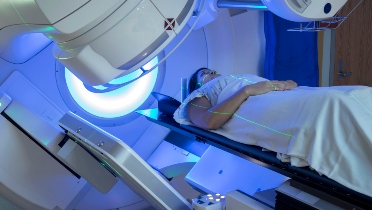

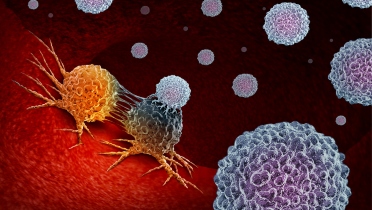











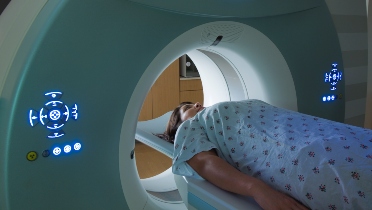

.jpg)
.jpg)
.jpg)
.jpg)
.jpg)
.jpg)
.jpg)
.jpg)
.jpg)
.jpg)
.jpg)
.jpg)
.jpg)
.jpg)
.jpg)
.jpg)


.jpg)
.jpg)
.jpg)
.jpg)
.jpg)

.jpg)
.jpg)


.jpg)
.jpg)


.jpg)
.jpg)
.jpg)

.jpg)
.jpg)

.jpg)
.jpg)
.jpg)
.jpg)
.jpg)

.jpg)
.jpg)

.jpg)

.jpg)
.jpg)

.jpg)
_.jpg)
.jpg)

.jpg)
.jpg)
.jpg)
.jpg)
.jpg)
.jpg)

.jpg)
.jpg)
.jpg)
.jpg)



.jpg)
.jpg)
.jpg)

.jpg)

.jpg)
.jpg)
.jpg)

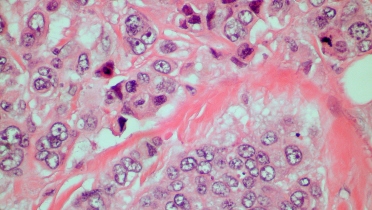
.jpg)
.jpg)
.jpg)
.jpg)
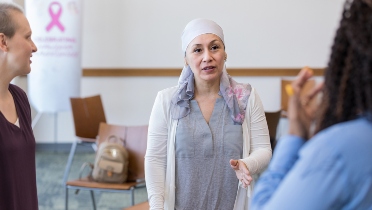
.jpg)
.jpg)
.jpg)
.jpg)


.jpg)
.jpg)


.jpg)
.jpg)
.jpg)
.jpg)
.jpg)

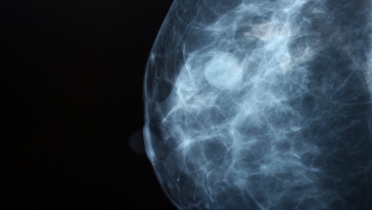
.jpg)
.jpg)


.jpg)
.jpg)
.jpg)
.jpg)
 Featured Breast Cancer Videos
Featured Breast Cancer Videos.jpg)